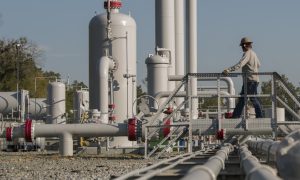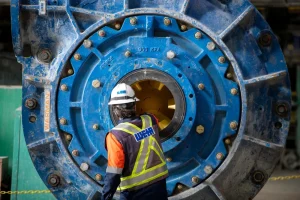The maritime industry is entering a pivotal phase of energy transition, driven by a convergence of regulatory pressure, investor scrutiny, and technological innovation. Long seen as a hard-to-abate sector, shipping is now embracing the climate agenda with tangible actions that extend far beyond ambition. Decarbonisation is no longer a theoretical target, it is fast becoming a commercial necessity.
Recent developments suggest momentum is gathering pace. The International Maritime Organization (IMO) has sharpened its focus on greenhouse gas reductions, setting clear signals that the carbon footprint of global fleets must fall. This has placed propulsion methods, fuel types, and ship design under intense review. Against this backdrop, biofuels have emerged as a leading contender in the race to decarbonise. Offering lower lifecycle emissions and compatibility with existing engine infrastructure, they present a pragmatic pathway for operators looking to reduce emissions without overhauling their fleets entirely.
This shift is further supported by technological enablers. Companies specialising in marine energy solutions are advancing systems that enhance fuel flexibility, optimise engine performance, and improve energy efficiency. Heat recovery units, fuel conditioning systems, and digital monitoring platforms are helping ship owners fine-tune operations and make real-time decisions that cut both emissions and costs. These solutions are not just retrofits—they’re foundational for the fleets of the future.
The investment community is taking note. Shipping companies that show clear strategies for carbon reduction are more likely to attract capital, particularly as environmental, social, and governance (ESG) criteria become embedded in financial decision-making. Institutional investors are increasingly directing funds toward firms with measurable sustainability commitments and innovative approaches to climate resilience.
Critically, the shift towards biofuels and lower-carbon operations also serves as a hedge against regulatory risk. As carbon pricing mechanisms become more sophisticated and emissions reporting becomes mandatory, those lagging behind will face higher compliance costs and potential market exclusion. In contrast, early adopters are positioning themselves to capture premium freight rates from charterers prioritising sustainable logistics.
The decarbonisation trend is also broadening the competitive landscape. Start-ups and engineering firms offering clean-tech solutions are gaining traction, partnering with major shipping lines to pilot cutting-edge systems and alternative fuels. Collaboration across the value chain, from fuel suppliers to port authorities, is unlocking synergies that accelerate progress.
Yet, the path ahead is not without challenges. Scaling up the production and distribution of marine biofuels requires significant infrastructure investment and policy alignment. Lifecycle emissions accounting, certification standards, and fuel availability are still evolving. Nevertheless, the groundwork is being laid. Strategic alliances, public-private partnerships, and cross-sector R\&D initiatives are driving the ecosystem forward.
The shipping sector’s pivot to greener practices is more than a compliance measure, it is a strategic evolution that enhances resilience, unlocks new efficiencies, and aligns with global decarbonisation goals. Investors who recognise the commercial opportunity in climate-aligned maritime transport stand to benefit as sustainability becomes synonymous with long-term value.
Shipping remains the backbone of global trade, transporting over 80% of goods by volume. As it adopts cleaner fuels, smarter technologies, and a proactive approach to emissions, the industry is repositioning itself not only for environmental compliance but for leadership in a rapidly changing world.
Quadrise plc (LON:QED) is an energy technology provider whose solutions enable production of cheaper, cleaner, simpler and safer alternatives to fuel oil and biofuels, proven in real world applications. Quadrise technologies produce transition fuels called MSAR® and bioMSAR™, which allow clients in the shipping, utilities and industrial sectors to reduce carbon emissions whilst also saving costs.








































